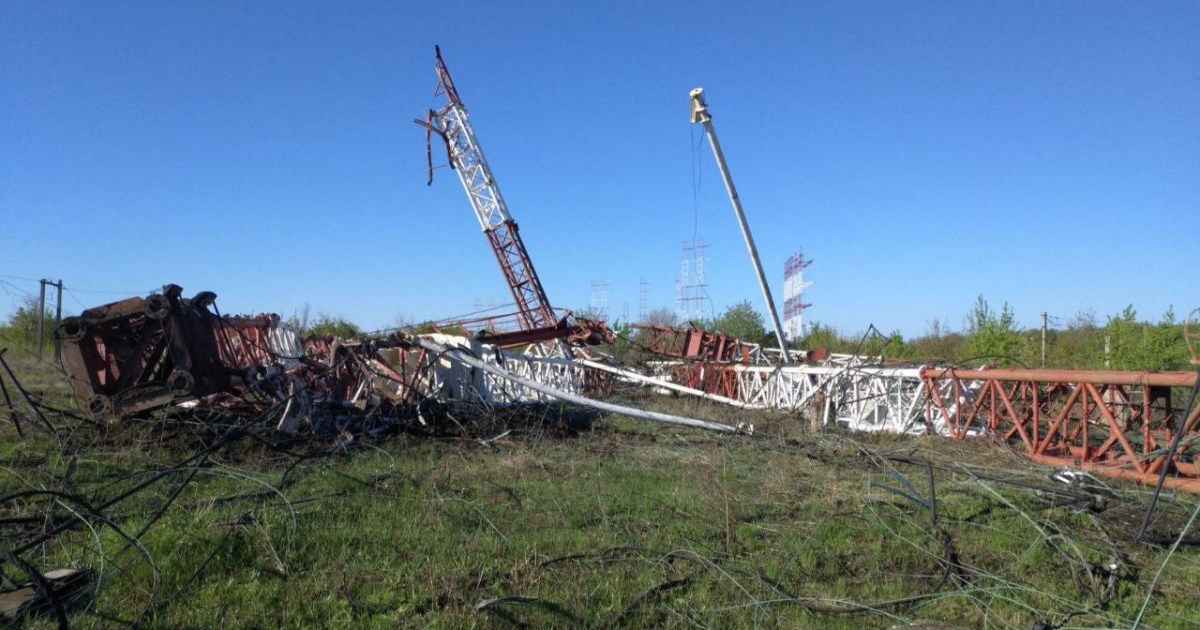
A series of attacks have targeted sites in Transnistria, a Russian-backed breakaway region in Moldova which borders Ukraine.
Blasts tore through the state security headquarters in Tiraspol on Monday and two explosions damaged Soviet-era radio masts on Tuesday in the village of Maiac, Grigoriopol district.
There were no reports of deaths or wounded and no one immediately claimed responsibility for the blasts. The Ukrainian defence ministry called the events a “planned provocation by the Russian special services.” Moldova’s president warned they were an attempt to escalate tensions, blaming “pro-war factions” within the breakaway territory.
Here is what you should know about Transnistria and why it matters in the context of the continuing Russia-Ukraine conflict.
What is Transnistria?
Transnistria, also commonly known as Transdniester, is a narrow strip of land between the east bank of the Dniester River and Moldova’s border with Ukraine.
Of a total population of about 470,000 people, ethnic Russians and Ukrainians together outnumber ethnic Moldovans.
While internationally recognised as part of Moldova, the Russian-backed breakaway territory has been under the control of separatist authorities since 1992, after the collapse of the Soviet Union triggered a conflict between the newly independent Republic of Moldova and separatists who wanted to maintain Soviet ties.
No country, including Russia, recognises the territory as independent, but Moldovan authorities have no control over the region, which functions akin to a separate state.
What does Transnistria have to do with the Russia-Ukraine conflict?
Russia has an estimated 1,500 soldiers in Transnistria, which Moscow refers to as a “peacekeeping” force. Kyiv is concerned that those forces could be used to attack Ukraine from the west.
Russia carried out military drills in the region as recently as February 2, and has said the Russian presence is essential to protect their citizens in the area and keep the peace between Moldovans and Transnistrians.
Should Russian President Vladimir Putin decide to involve Transnistria in the war in some capacity, it has little leverage to refuse, as it remains economically dependent on Russia, including for free gas.
What are Russia’s interests in Transnistria?
Rustam Minnekayev, deputy commander of Russia’s central military district, was quoted last week by state news agencies as saying that Russia aimed to take control of southern Ukraine, which would give it access to Transnistria.
It is unclear whether the Russian military, embroiled in a fight to take eastern Ukraine, would be able to seize more territory in southern Ukraine and advance towards Moldova.
But Russia could potentially seek to use Transnistria to assist with medical aid and food, guarding convoys and securing the railway network, and offering a safe space where to resupply its troops, repair equipment and regroup.
Ukrainian President Volodymyr Zelenskyy has warned that Russia’s invasion of his country was just the beginning and that Moscow has designs on seizing territory in other countries, as well.
Is Moldova a NATO member?
Moldova is a not part of the transatlantic military alliance and has sought to stay neutral since its independence, with neutrality enshrined in its constitution.
There are concerns about its ability to defend itself from a potential Russian invasion should Putin push towards its border with Ukraine.
However, last month the nation of about 2.6 million submitted a bid to join the European Union, along with Georgia and Ukraine.
Does Russia have ambitions in the region?
A week into Putin’s invasion of Ukraine, a video surfaced showing Putin and Belarusian President Alexander Lukashenko standing next to a map that appeared to indicate Transnistria as a potential target.
Officials in Belarus later said the map was a mistake.
Moldova has a long history of domination by the Russian Empire and later the Soviet Union. However, it has been transitioning away from Russian influence since the 1990s, slowly moving towards Europe.
Five things to know about Russian-backed Transnistria - Al Jazeera English
Read More
No comments:
Post a Comment